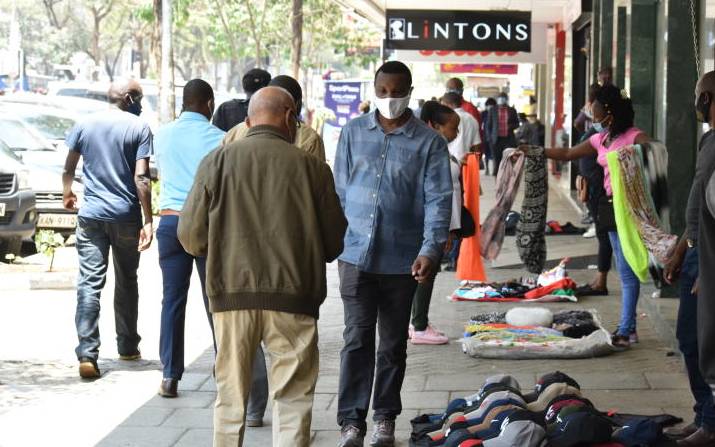×
The Standard e-Paper
Stay Informed, Even Offline

Members of the public walk outside 680 Hotel along Muindi Mbingu street buying on September 17, 2020. [Samson Wire, Standard]
Eustace is explaining to me the challenges he faces selling on the verandah of a business complex in Nairobi’s central business district when he suddenly squats, grabs the mats his wares are laid on, clasping two in each hand, and hauls the load on his back.